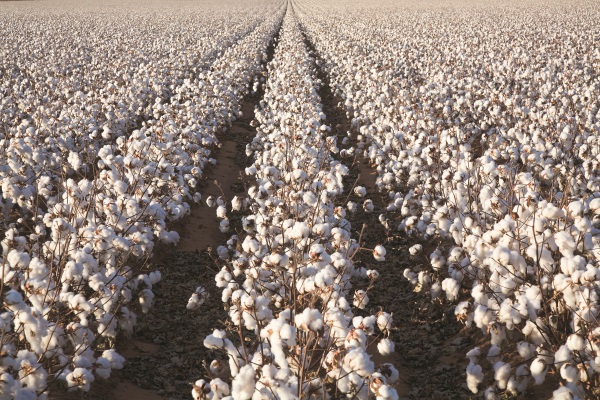Indian Cotton Production Expected to Reach 43 Million Bales by 2030
India’s cotton production may reach 43 million bales (170 Kgs each) by 2030.
That’s the takeaway from a Global Cotton Day celebration, an informative virtual event on the Indian cotton sector organized by the Confederation of Indian Textile Industry on Oct. 7.
Productivity, quality, and contamination issues occupied the center stage of discussion.
Indian cotton production is expected to be about 42-43 million bales (170 Kgs/bale) by the end of this decade, stated Mr. G. Chandrasekar, senior journalist who has been covering the Indian cotton sector for many decades. Indian consumption may reach 40 million bales and demand may see an increase, he added.
Stakeholders emphasized the importance of quality both in terms of contamination as well as adulteration. Awareness of contamination has been increasing at the farm level, and the issue at the gin level needs addressing, stated Atul Ganatra, President of the Cotton Association of India.
Mr. Piyush Goyal, Honorable Union Minister of Textiles, Government of India, emphasized the importance of enhancing yield and paying attention to quality. He highlighted the importance of the research translation “lab to farm” and nudged the stakeholders to work on the “culture of quality.”
The minister encouraged the Indian textile sector to be a global player, pointing to the yield per hectare issue in India which is at 457 Kg/hectare – far behind the global average of 757 Kg/hectare.
While yield and quality issues are getting the right focus, there is a timely need to enhance the market for cotton both in terms of geographical outreach and products. In this regard, the possibility of collaborations to enable cotton as a sustainable candidate in the technical textiles sector has to be given serious discussion.
An ongoing collaboration between Texas Tech University and India-based Jayalakshmi Textiles has resulted in development of a cotton-based oil absorbent. Jayalakshmi Textiles has been a leading cotton spinner, and its efforts to venture into technical textiles products is a positive direction towards diversification.










